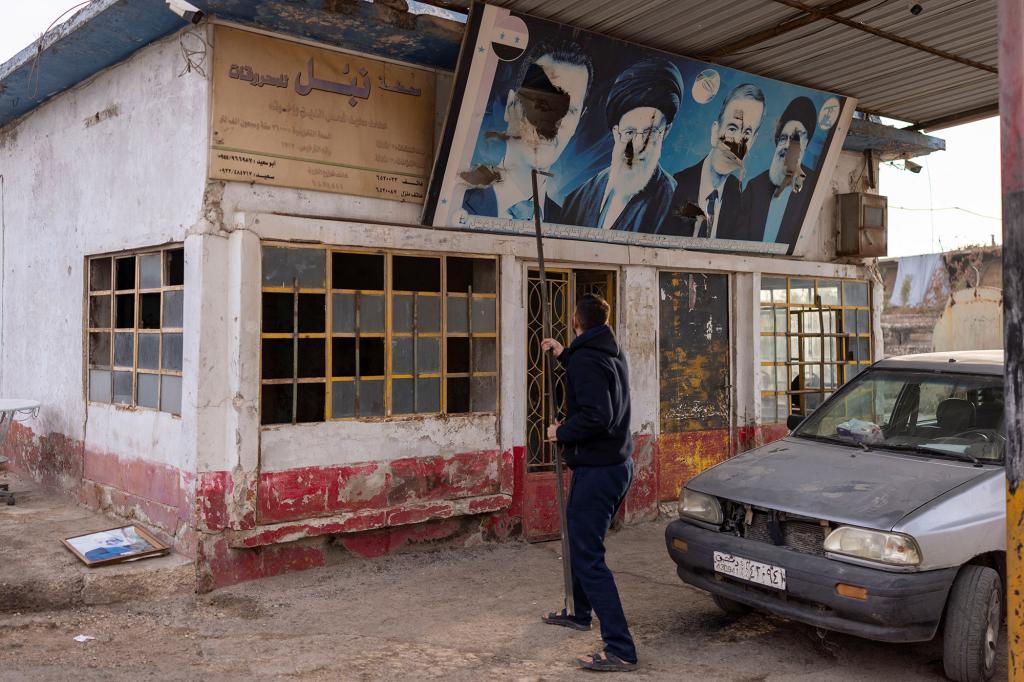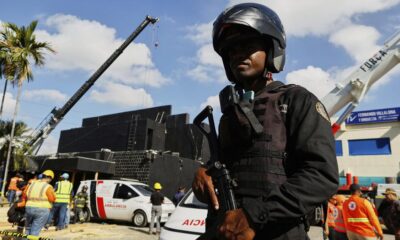Breaking News
After Syrian rebels force Assad out, the Iranian regime could be the next one to collapse

The political landscape in the Middle East is shifting, with potential significant consequences.
For the last four and a half decades, the Revolutionary Islamic Government in Iran has been a major source of instability in the region, despite facing tough competition. The ayatollahs have expanded their influence across the Middle East, although this is often overlooked by many in American college circles.
Over the years, the mullahs have extended their reach into Lebanon, Iraq, Yemen, and propped up Bashar al-Assad in Syria for 13 years.
However, recent events have seen a shift in power dynamics. Iran’s proxy army, Hamas, launched an attack on Israel with the aim of wiping out the Jewish state, but their plan backfired. Israel has effectively dismantled Iran’s armies, severely weakened Hamas in Gaza, and forced Hezbollah in Lebanon to seek a ceasefire.
Following direct missile strikes from Iran, Israel successfully eliminated all of Iran’s air defenses. As a result, the Assad regime in Syria finally fell, with the Assad family fleeing to Russia.
This power vacuum in Syria poses a significant concern for the region and the world at large. Nevertheless, the main blow has been dealt to Tehran.
The mullahs find themselves increasingly isolated and vulnerable. They have refrained from retaliating against Israel’s recent strikes, likely aware that any response could mark the end of their regime and ambitions.
While President-elect Donald Trump and his national security adviser, Mike Waltz, have expressed a desire to avoid further entanglement in Middle East conflicts, Israel has demonstrated how strategic military action can shape the region’s future without committing ground troops.
The incoming administration plans to reimpose sanctions on Iran and halt the practice of providing cash to Tehran. By isolating the mullahs and weakening their grip on power, the US can play a crucial role in reshaping the Middle East.
It shouldn’t solely be Israel’s responsibility to prevent weapons from falling into terrorist hands. The US and other Western powers must align themselves with allies who share common interests and values.
One such ally deserving of support is the Kurdish people, who have been steadfast partners in the fight against ISIS. By backing Kurdish nationalism and potentially supporting the creation of a Kurdish state, the US can not only reward its allies but also counter the influence of regional despots like Turkey and Iran.
It’s essential to prepare for a post-Assad Syria and a post-ayatollah Iran, as these regimes have contributed to the current state of conflict in the region. By working with allies and leveraging strategic actions, America can play a significant role in shaping the future of the Middle East.
The Iranian government initiated this conflict, but with concerted efforts from the US and its regional allies, they can be defeated.
-

 Destination8 months ago
Destination8 months agoSingapore Airlines CEO set to join board of Air India, BA News, BA
-

 Breaking News10 months ago
Breaking News10 months agoCroatia to reintroduce compulsory military draft as regional tensions soar
-

 Gadgets3 months ago
Gadgets3 months agoSupernatural Season 16 Revival News, Cast, Plot and Release Date
-

 Tech News12 months ago
Tech News12 months agoBangladeshi police agents accused of selling citizens’ personal information on Telegram
-

 Productivity11 months ago
Productivity11 months agoHow Your Contact Center Can Become A Customer Engagement Center
-

 Gadgets3 weeks ago
Gadgets3 weeks agoFallout Season 2 Potential Release Date, Cast, Plot and News
-

 Breaking News10 months ago
Breaking News10 months agoBangladesh crisis: Refaat Ahmed sworn in as Bangladesh’s new chief justice
-

 Toys12 months ago
Toys12 months ago15 of the Best Trike & Tricycles Mums Recommend























